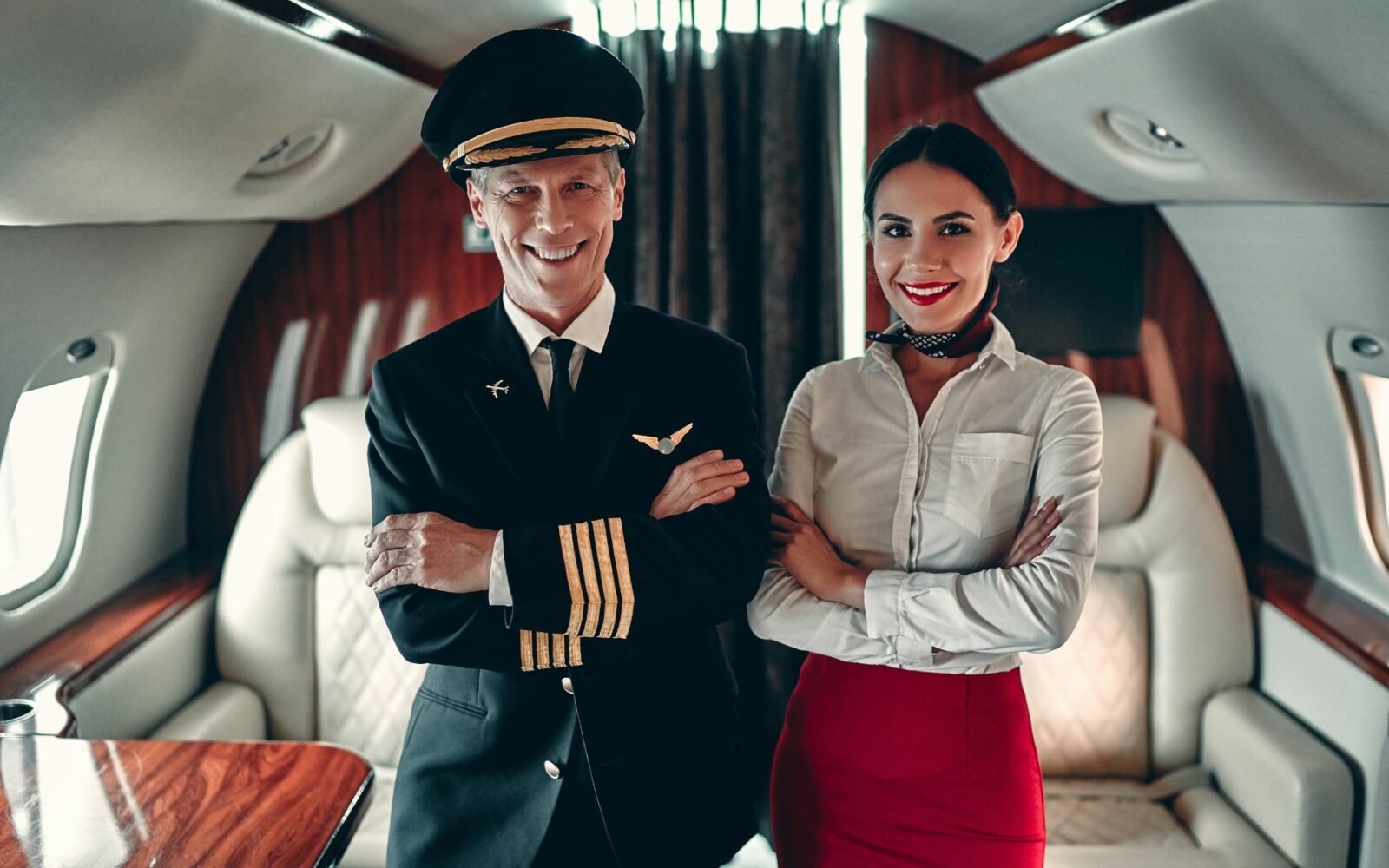If you want to become a private flight attendant, this article will guide you through the steps necessary to pursue this exciting career path. From acquiring the right skills and training to build a strong network, we’ll cover everything you need to know to become a successful private flight attendant.
What Is a Private Jet Flight Attendant?
Unlike their commercial airline counterparts, private flight attendants typically work for private individuals or companies and are responsible for providing a personalized and luxurious experience to their clients. These professionals may work as part of a team for a chartered flight company, serving multiple clients on a single flight, or for a single private employer, catering to their employer’s needs whenever required. In either case, private jet flight attendants are expected to deliver exceptional service that exceeds the expectations of even the most discerning clients, often with flexibility and attention to detail.
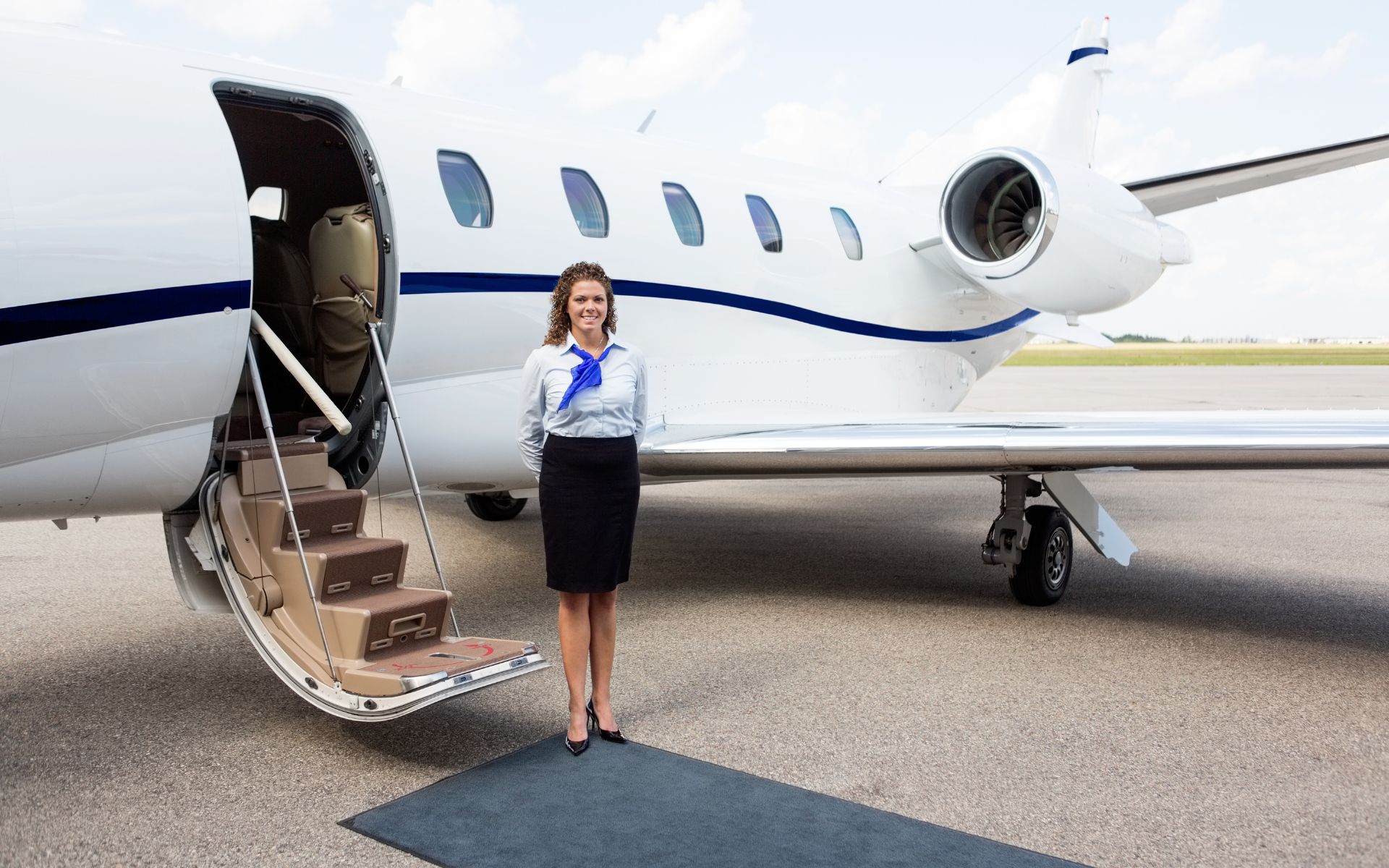
What Are the Responsibilities of a Private Jet Flight Attendant?
The responsibilities of a private jet flight attendant are varied and require a unique skill set. Some typical duties of a private jet flight attendant may involve:
- The primary duties of a private jet flight attendant include ensuring the safety and comfort of passengers onboard, among other responsibilities. Unlike commercial flights, private jet flights typically have fewer passengers, allowing the flight attendant to provide personalized attention to each passenger. This means ensuring that all safety protocols are followed, from conducting pre-flight safety briefings to securing the cabin in turbulence.
- Private jet flight attendants are responsible for providing excellent customer service. This includes catering to each passenger’s specific needs and preferences, such as meal and beverage preferences, temperature control, and special requests. Private jet flight attendants maintain cabin cleanliness and aesthetics to enhance passenger comfort and enjoyment in addition to their primary responsibility of ensuring passenger safety.
- Private jet flight attendants must prioritize passenger safety and comfort while also possessing the ability to quickly and calmly handle emergencies. This includes knowing how to administer first aid and handle medical emergencies, as well as being trained in emergency evacuation procedures.
- Private jet flight attendants may be responsible for coordinating with ground staff, such as arranging for ground transportation and handling luggage. They may also manage inventory, order supplies, and restock the cabin between flights.
- Private jet flight attendants must typically possess additional skills and qualifications beyond their core duties. These may include fluency in multiple languages, proficiency in high-end hospitality, and other specialized abilities. Private jet flight attendants must maintain a consistently professional demeanor and remain composed even in unexpected situations.
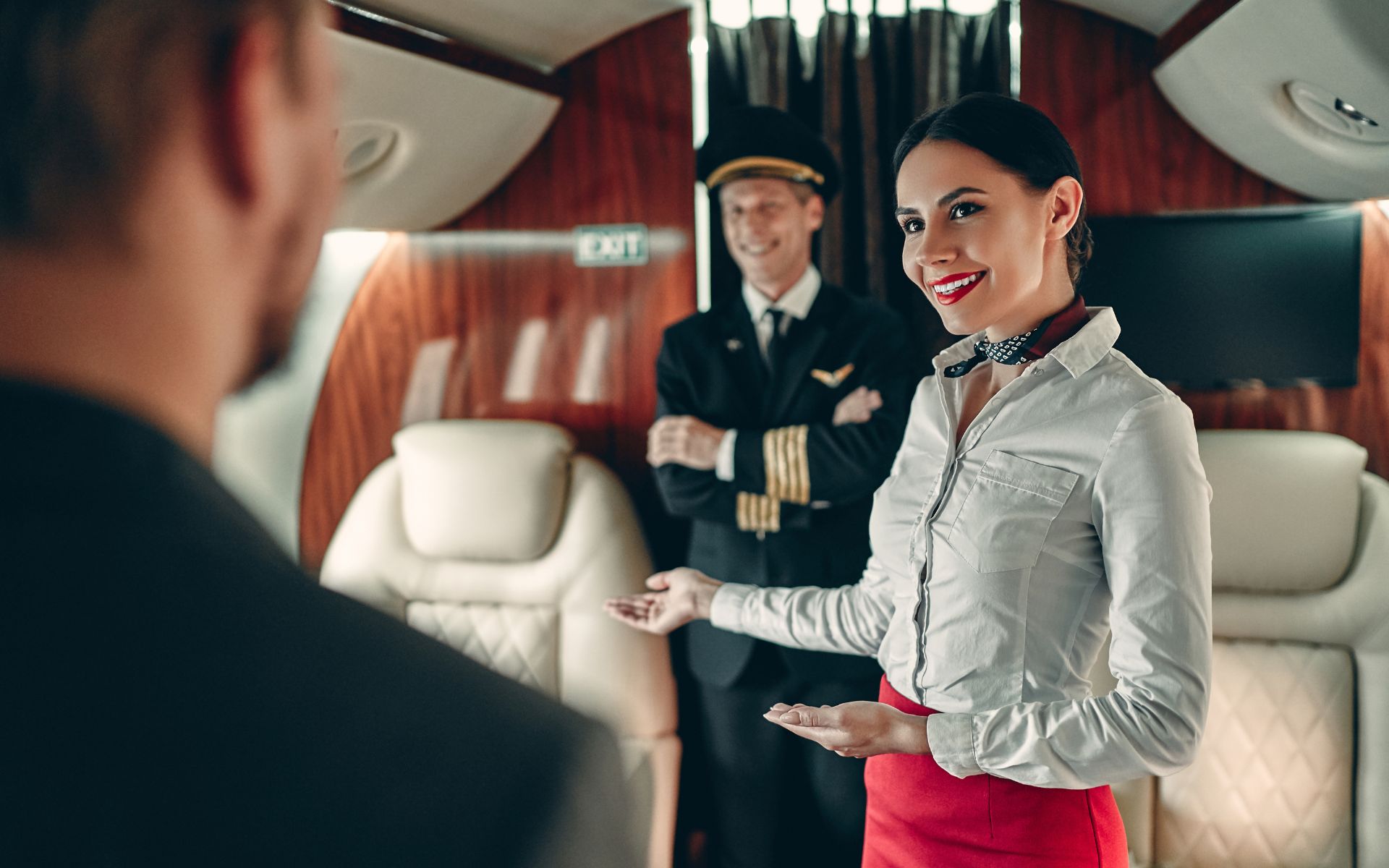
How to Become a Private Flight Attendant?
Becoming a private flight attendant can be a rewarding career for those passionate about hospitality and aviation. However, it requires meeting specific requirements and building relevant skills and experience. Here are the steps you can take to become a private flight attendant:
Step 1: Meet the Basic Requirements
The requirements for becoming a private flight attendant are comparable to those of commercial flight attendants. To be a private flight attendant, you must meet the minimum requirements, including being 18 years old, having a high school diploma or equivalent, and legally authorized to work in the country. You’ll also need to meet height and weight requirements and have a professional appearance.
Step 2: Get Certified
While private flight attendants don’t typically require the same certifications as commercial flight attendants, getting certified in areas such as CPR and first aid, food handling and safety, and emergency procedures is still a good idea. Some organizations offer training and certification programs for flight attendants, such as the National Private Flight Association and the FlightSafety International Cabin Crew Training Program.
Step 3: Gain Experience
Private flight attendant positions are highly competitive, so gaining experience in hospitality or customer service can help set you apart from other candidates. For instance, you can gain relevant experience by working in an upscale hotel or restaurant or by volunteering at events that allow you to demonstrate your service-oriented skills. Additionally, many flight attendant positions require previous experience as a flight attendant or in the aviation industry, so consider pursuing opportunities in these fields.
Step 4: Build a Network
Networking is key to finding opportunities as a private flight attendant. Attend industry events and conferences, join professional organizations, and connect with current flight attendants on social media. You can also consider working with a placement agency specializing in private flight attendants to help you find job opportunities.
Step 5: Apply for Jobs
Highlighting your team working skills and effective communication with the flight crew is crucial. Flight attendants often work closely with the pilots and other crew members, so demonstrating your experience in working collaboratively with a team will be highly valued. Don’t forget to highlight any experience you may have in providing exceptional customer service, as this is a key aspect of the job when serving high net worth individuals and their guests.
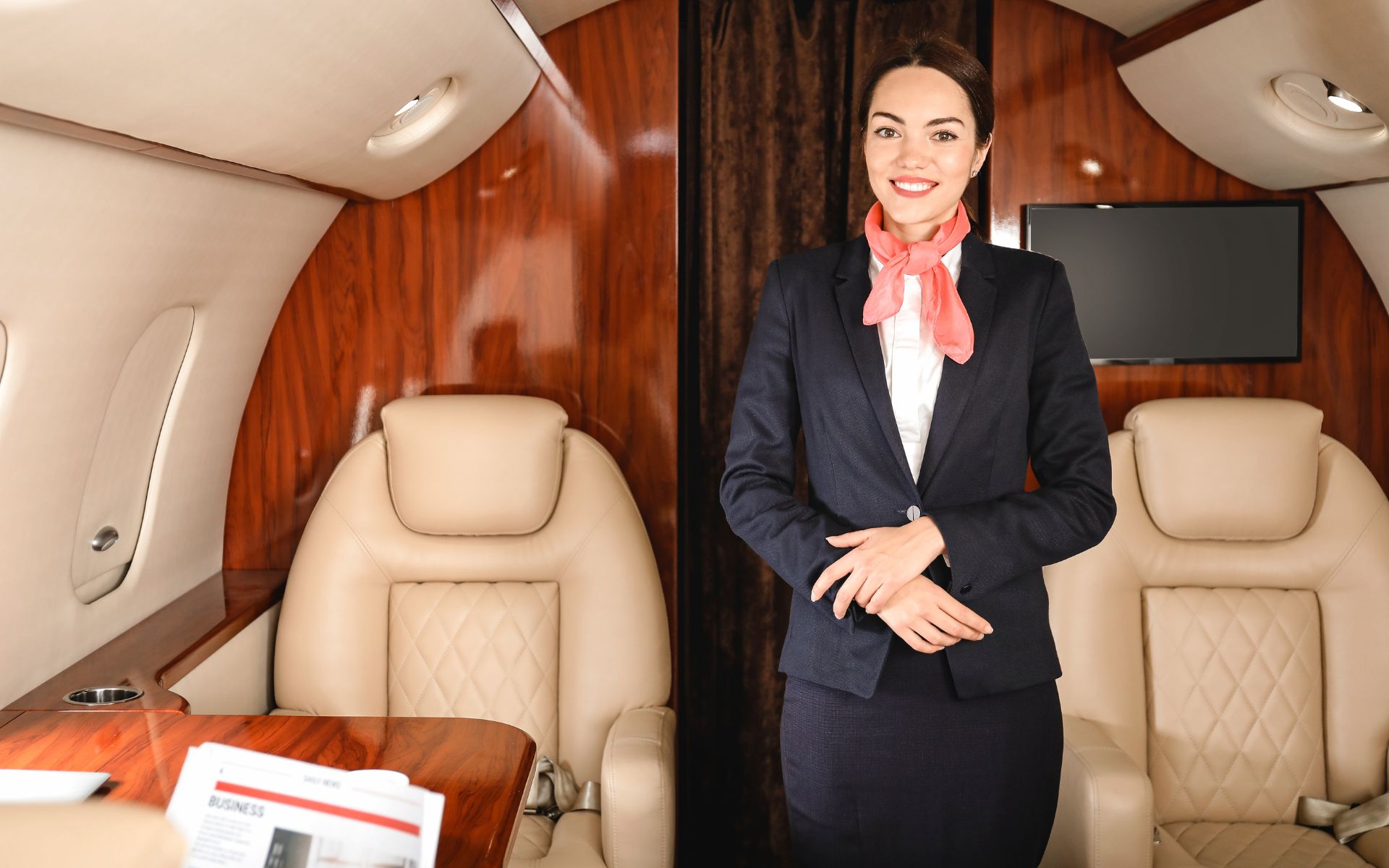
Private Flight Attendant Skills
To succeed as a private flight attendant, it’s crucial to cultivate the essential skills that employers often seek in potential candidates. Some of these skills include:
1. Customer Service Skills
As a private flight attendant, your primary responsibility is to ensure the safety and comfort of your clients. This means providing exceptional customer service at all times. You must anticipate your client’s needs and preferences and respond to them promptly and professionally. This requires excellent communication skills, a friendly demeanor, and a willingness to go above and beyond to exceed your client’s expectations.
2. Attention to Detail
Attention to detail is crucial in the role of a flight attendant. You must be meticulous in your preparations, ensuring everything from the cabin layout to the catering and entertainment is perfectly arranged. You must also be vigilant in your safety checks, ensuring that all equipment functions correctly and that emergency procedures are well understood.
3. Multitasking Abilities
Private flight attendants must be able to juggle multiple responsibilities simultaneously. This includes serving meals and beverages, attending to clients’ needs, managing logistics, and responding to emergencies. You must be able to manage your time effectively and prioritize tasks to ensure that everything is done on time and to the highest standard.
4. Cultural Competence
As a flight attendant, you may work with clients from around the world, each with unique customs and cultural expectations. It’s essential to have a strong understanding of different cultures, languages, and customs to ensure you can provide exceptional service to all clients.
5. Emotional Intelligence
Private flight attendants must be able to manage their emotions and respond professionally to challenging situations. You must remain calm under pressure, deal with difficult clients, and resolve conflicts quickly and diplomatically. This requires emotional intelligence, self-awareness, and the ability to manage stress effectively.
6. Problem-Solving Skills
Finally, flight attendants must be excellent problem-solvers. You must think creatively and quickly to resolve issues during flights, from catering issues to equipment malfunctions. You must also be able to anticipate potential problems and have contingency plans in place to deal with them effectively.
7. Developing Your Skills as a Private Flight Attendant
If you’re interested in becoming a private flight attendant or want to improve your skills in this role, there are several steps you can take. Consider enrolling in customer service training courses, language classes, and safety and emergency procedure training. Look for opportunities to gain experiences in customer service or hospitality, such as working in high-end restaurants or hotels.
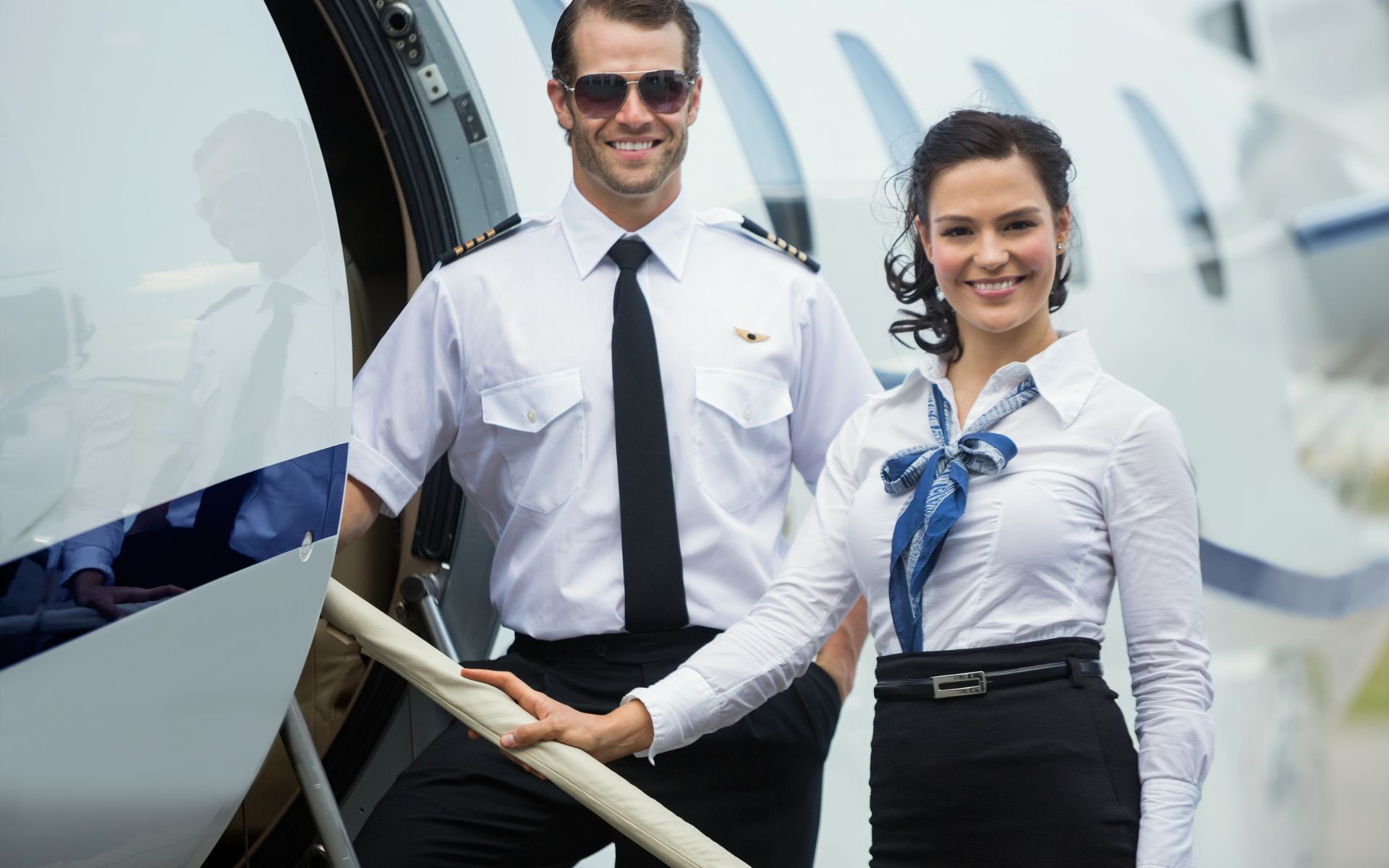
Finding a Job as a Private Flight Attendant
As a private flight attendant, finding a job can be competitive and challenging. Networking is key, so attending industry events, joining professional organizations, and connecting with current flight attendants on social media is essential. Consider working with a placement agency that specializes in private flight attendants to help you find job opportunities. When applying for positions, tailor your resume and cover letter to highlight your relevant experience and skills. Be ready for a demanding interview process, possibly involving several rounds of interviews and background screenings. With commitment and persistence, a fulfilling career as a flight attendant can be achieved.
Job Market
The job outlook for private flight attendants is positive, with increasing demand for cabin crew across all aviation sectors. The industry is rapidly recovering from the COVID-19 pandemic, with private travel growing particularly strongly. As a result, flight attendants are in high demand and short supply.
According to the US Bureau of Labor Statistics, the flight attendant job market is expected to grow at a rate of 20.8%, resulting in an estimated 18,100 new roles each year until 2031. This growth rate is over four times faster than the national average for occupational job growth, highlighting the strong career prospects for those pursuing a career as a private flight attendant.
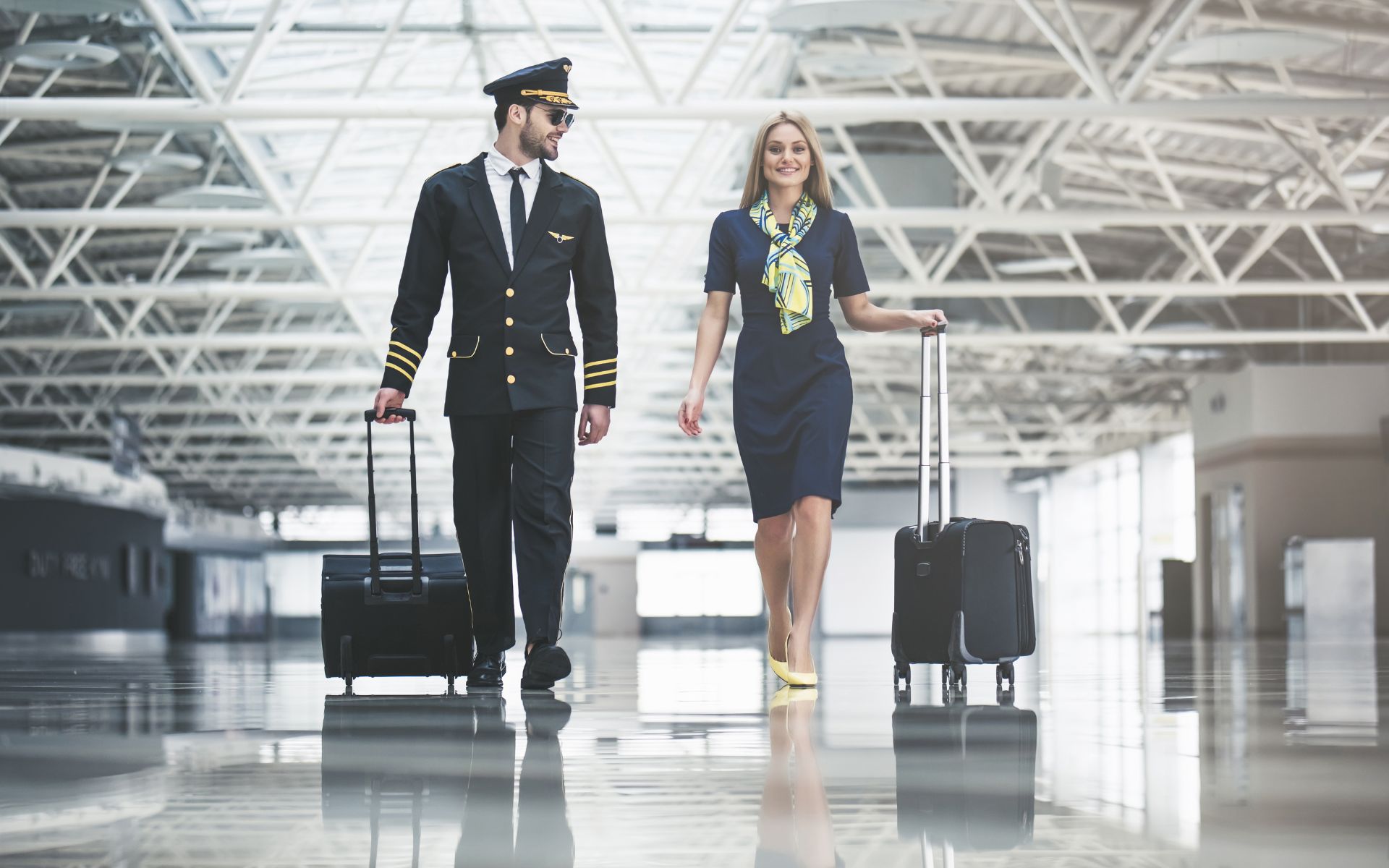
Salary
Several factors can affect the salary of a corporate flight attendant, including their level of experience, certifications, flight schedule, responsibilities, location, benefits, and whether they primarily work domestically or internationally.
On average, a commercial flight attendant earns around $40,000 annually, while a corporate flight attendant typically earns between $50,000 to $70,000 per year. With several years of experience, some corporate flight attendants can earn over $100,000 annually.
Final Thoughts
Becoming a flight attendant is an exciting and rewarding career choice that allows you to travel the world while providing exceptional service to high-end clients. However, it requires dedication, hard work, and a commitment to customer service excellence. By following the steps outlined in this article and building the essential skills and experience required for the role, you can become a successful private flight attendant and enjoy a fulfilling and lucrative career in the aviation industry.

